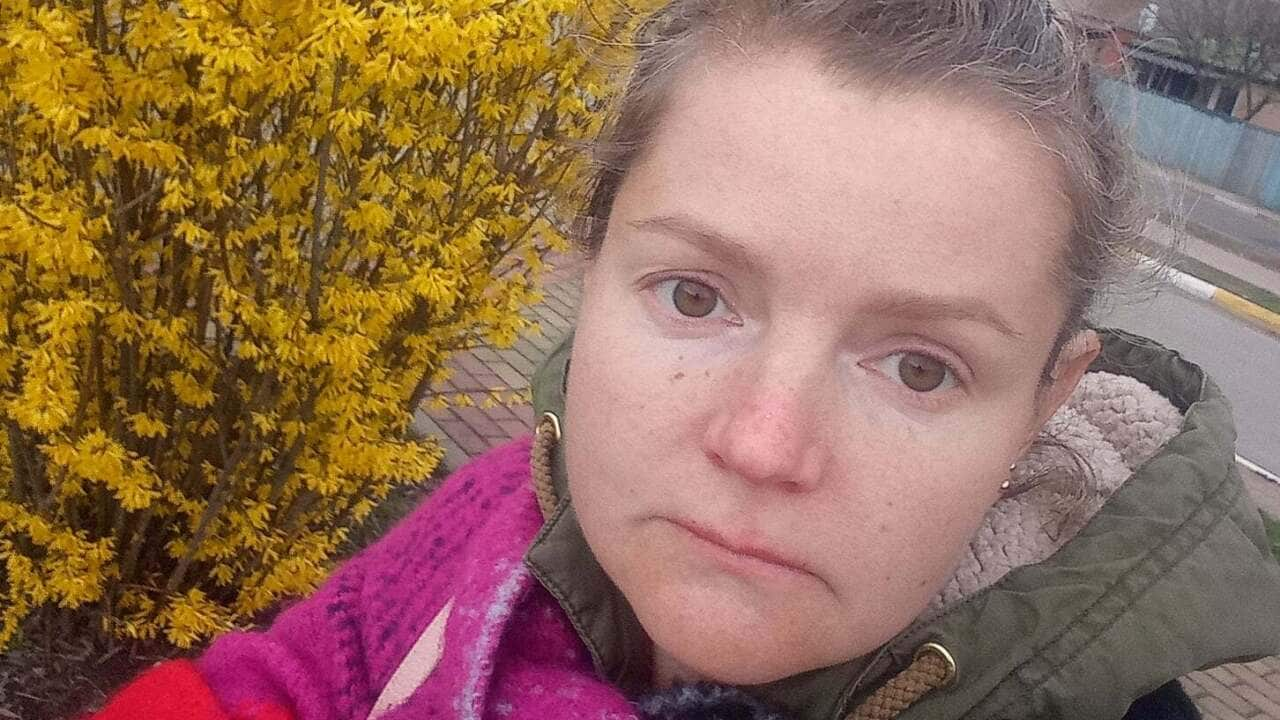Ukrainians in Australia say any deal between the United States and Russia to end the war in Ukraine offers little hope they will one day return to their country.
Peace talks aimed at ending the war in Ukraine kicked off in Saudi Arabia overnight — but a Ukrainian delegation .
President Volodymyr Zelenskyy has warned that Ukraine will not accept any peace deal proposed by the US and Russia without its direct involvement.
"We cannot accept it, as an independent country," Zelenskyy said.
Maria Mykytiuk, who fled after Russia's full-scale invasion nearly three years ago, said the talks offered little hope of a return to Ukraine.
'A deal is impossible'
Mykytiuk now lives in Sydney with her two children. She is studying English at TAFE and working in a veterinary hospital.
She said her health expertise made her a target when her home of Bucha in Ukraine was invaded.
"I was the only one with medical skills in our town and I tried to help people because it was very cold, and the Russian soldiers hated me," she told SBS News.
"When I tried to explain to the Russians that many people had fallen ill and needed treatments, they were annoyed and said to me: 'you are Ukrainians, you are not people, you need to be killed'."
She believes that Russia's attitude towards Ukrainians makes a peace deal impossible.

Maria lives with her two children Anastasia and Kyrylo who have received scholarships to attend elite schools in Sydney. Credit: Supplied
"The Russians hate us."
Many of her friends and relatives still live under Russian occupation in Ukraine.
Their distress is heartbreaking for Maria, who feels she cannot help them, or return to Ukraine herself.
"All my friends and my relatives under the Russian occupation are just waiting for the Ukrainian military and waiting for liberation," she said.
"I have no place to come back to. I have no house, I have nothing now in Ukraine."
Three years since the start of Russia's full-scale invasion
On 24 February 2022, Russia launched a full-scale invasion of Ukraine, a major escalation of the Russia-Ukraine war, which started in 2014 after the annexation of Crimea.
A report by the United Nations released in January stated the number of civilian deaths since the start of the full-scale invasion is hard to quantify, but is in the thousands.
"The UN has recorded more than 28,000 civilian casualties and over 10,000 deaths, but acknowledges that the actual toll is very likely to be higher," it said.
It said more than 14 million Ukrainians are in need of humanitarian assistance.
Australia, along with other world leaders has condemned the invasion and said it supports "Ukraine's sovereignty and territorial integrity".
"We have contributed over $1.5 billion towards important defence, economic, energy and humanitarian assistance to Ukraine in response to Russia's illegal and immoral invasion on 24 February 2022," the Department of Foreign Affairs and Trade said in a statement.
"Australia's objective, along with our partners, is to empower Ukraine to achieve a just, fair and lasting peace."
Around 20 per cent of Ukraine's landmass is currently occupied by Russia.
'I want them all to live'
Anton Bogdanovych, a rally organiser for the Ukrainian community, described Russia as a bully in Europe, fearing any peace in the region would be violated.
"Ukrainians want peace like no one else. Many of my friends are on the frontline. My brother-in-law is in artillery. My parents and my relatives in Kyiv experience daily attacks by missiles and kamikaze drones," he said.
"I want this to stop. I want them all to live."
But Bogdanovych does not trust Russia to hold to a peace agreement.
"We don't want Russians to take a small break and then come back even stronger and continue killing our people like they did every time after yet another ceasefire agreement has been signed," he said.
"This is what always happens when bullies get what they want."

Anton regularly organises rallies in support of Ukraine in Sydney's CBD. Source: Supplied / Nicholas Buenk
Bogdanovych believes any talk of Ukraine ceding territory as part of a proposed deal violates the 1994 Budapest Memorandum.
Ukraine agreed to give up its nuclear arsenal and transfer the warheads to Russia for decommissioning, and sought guarantees from the US that it would protect its sovereignty if it was infringed on. But ultimately what was agreed on was security assurances "to respect the independence and sovereignty and the existing borders of Ukraine".
Aldo Zammit Borda, a reader in law at City St Georges University of London, wrote in The Conversation in 2022 that they were "somewhat weaker" but "nevertheless significant", although "the meaning of the security assurances was deliberately left ambiguous". Earlier this year, Zelenskyy criticised the deal when appearing on a US podcast, saying Russia and the US had pressured Ukraine into giving up its nuclear weapons, and his country had on multiple occasions attempted to have the terms of the agreement enforced to no avail.
Bogdanovych believes such a violation waters down international law, and called on Australia to step up its military aid, freeze Russian assets and direct them to Ukraine..
"Because it's in the interests of Australia's own security to help Ukraine restore international law in the situation where the US has dropped the ball," he said.
The federal government has sanctioned more than 1,000 individuals and entities supporting Russia's invasion — .
This week’s meeting in Saudi Arabia's capital, Riyadh, marked the first known face-to-face encounter between Russian and US delegations since Russia’s full-scale invasion of Ukraine.
In attendance were US Middle East envoy Steve Witkoff, US national security adviser Mike Waltz, Russian presidential aide Yury Ushakov, and Kirill Dmitriev, head of Russia’s sovereign wealth fund.
The discussions will cover various issues, including NATO’s role in the region and ongoing territorial disputes.




